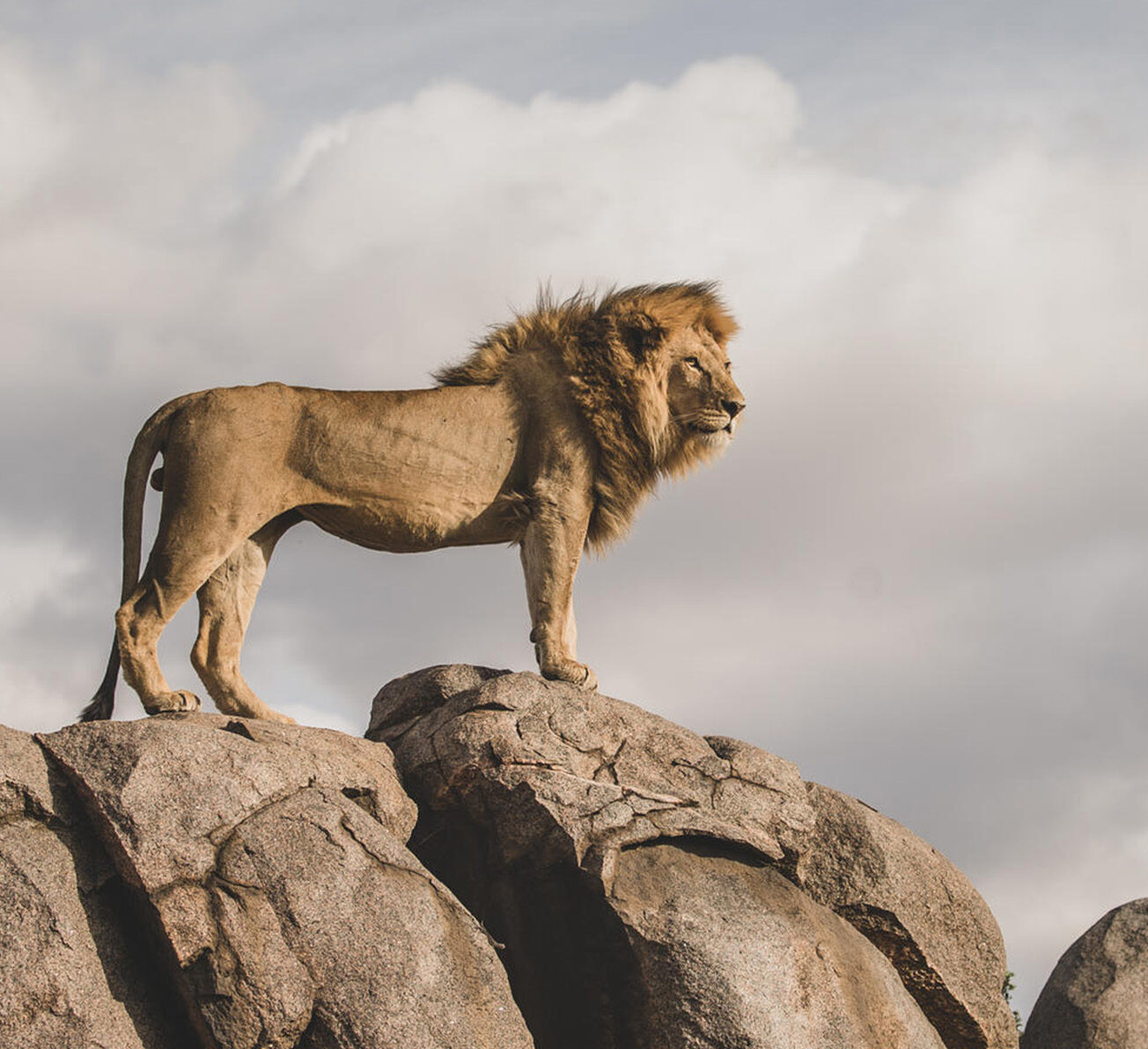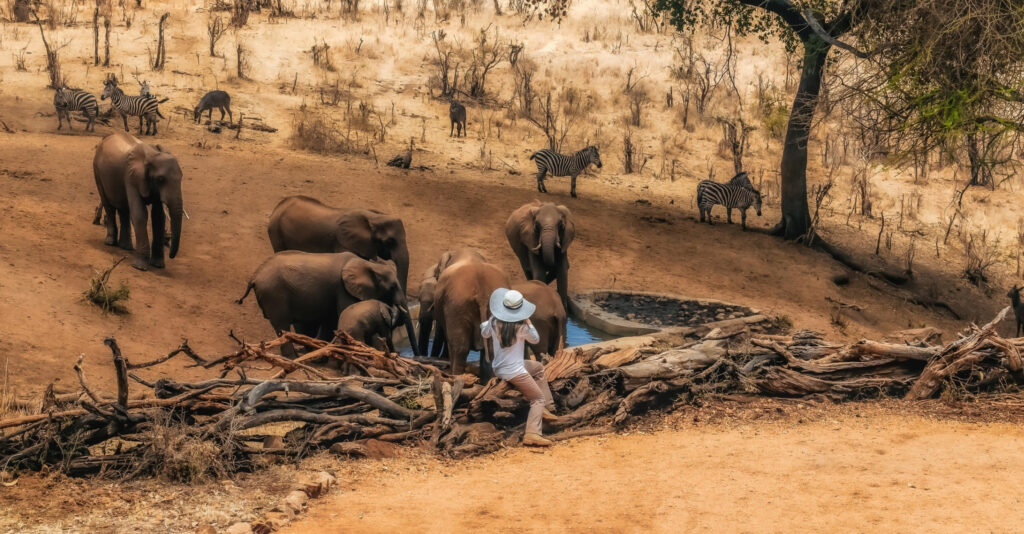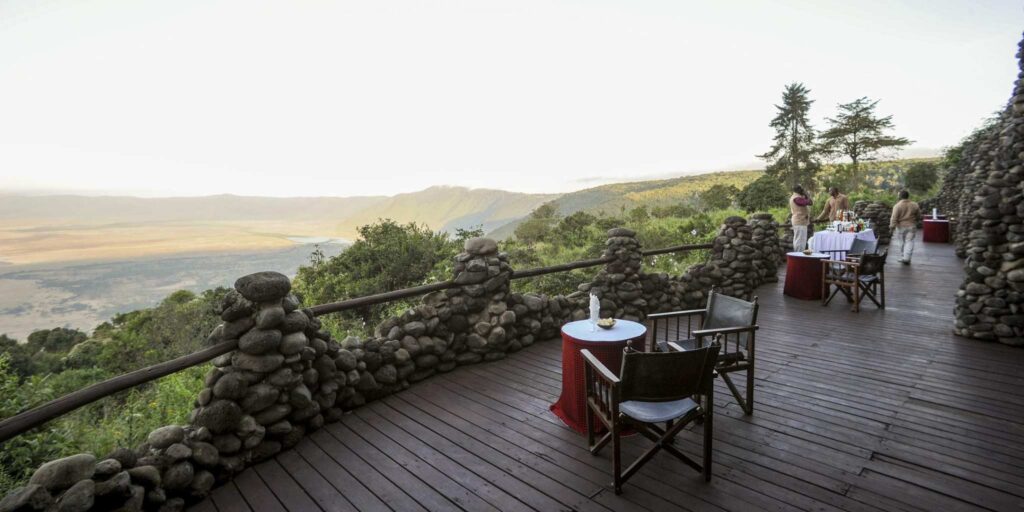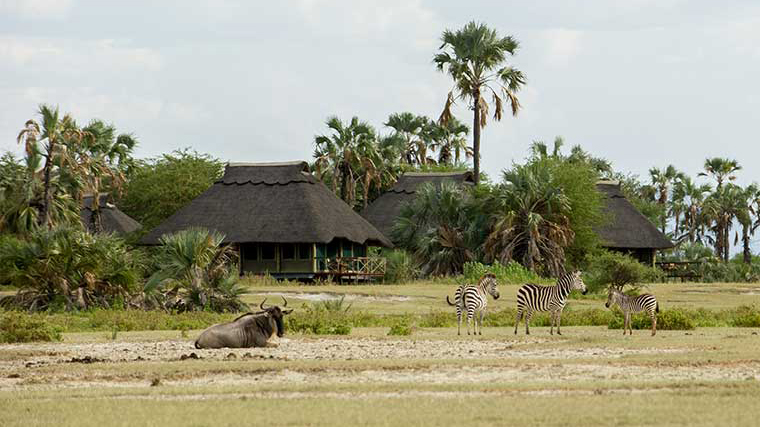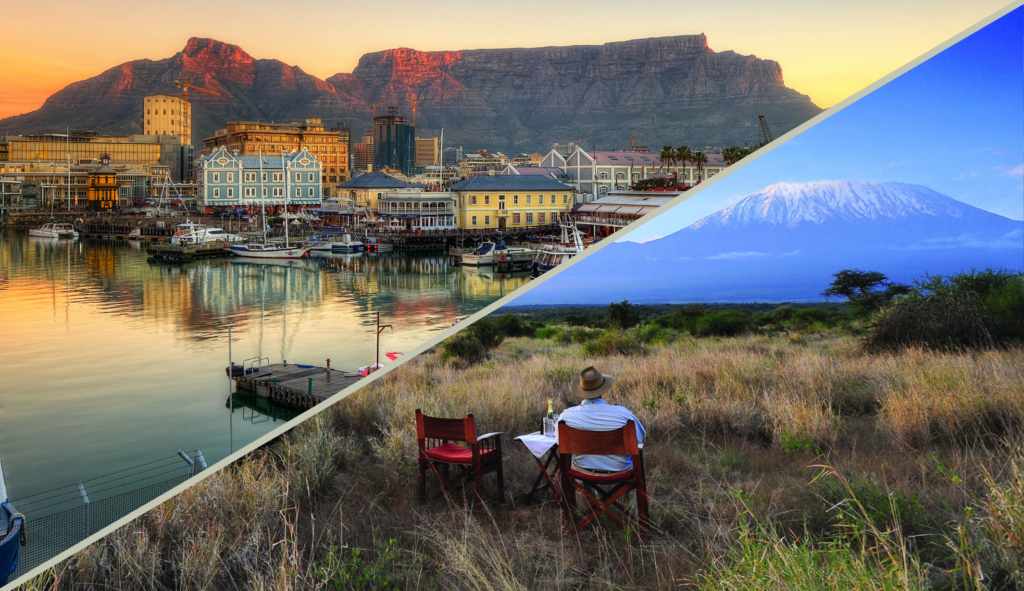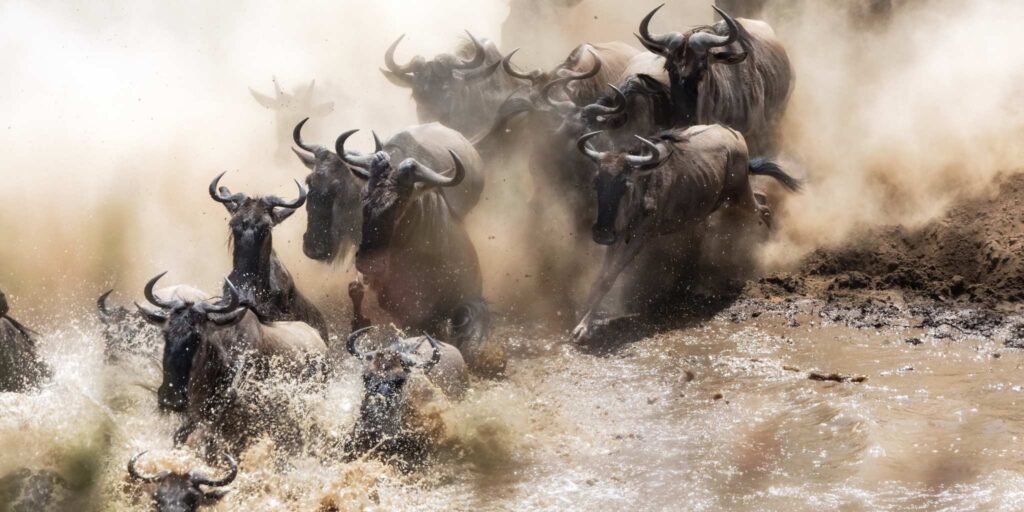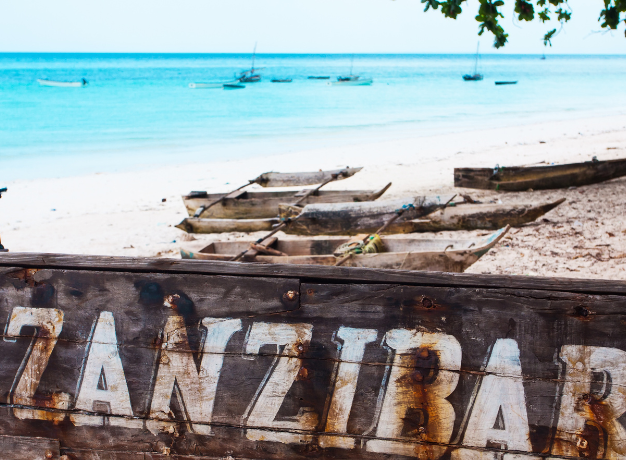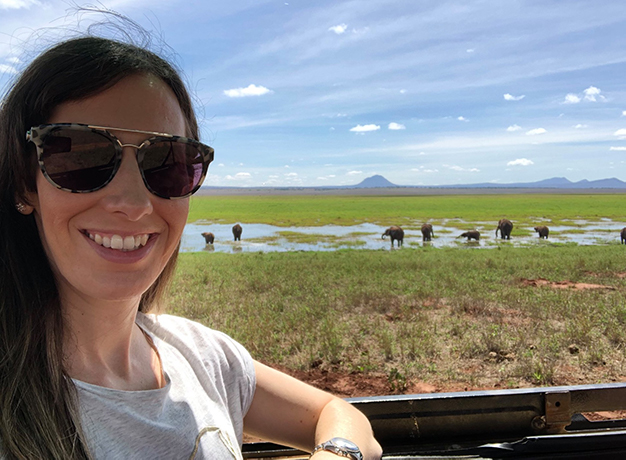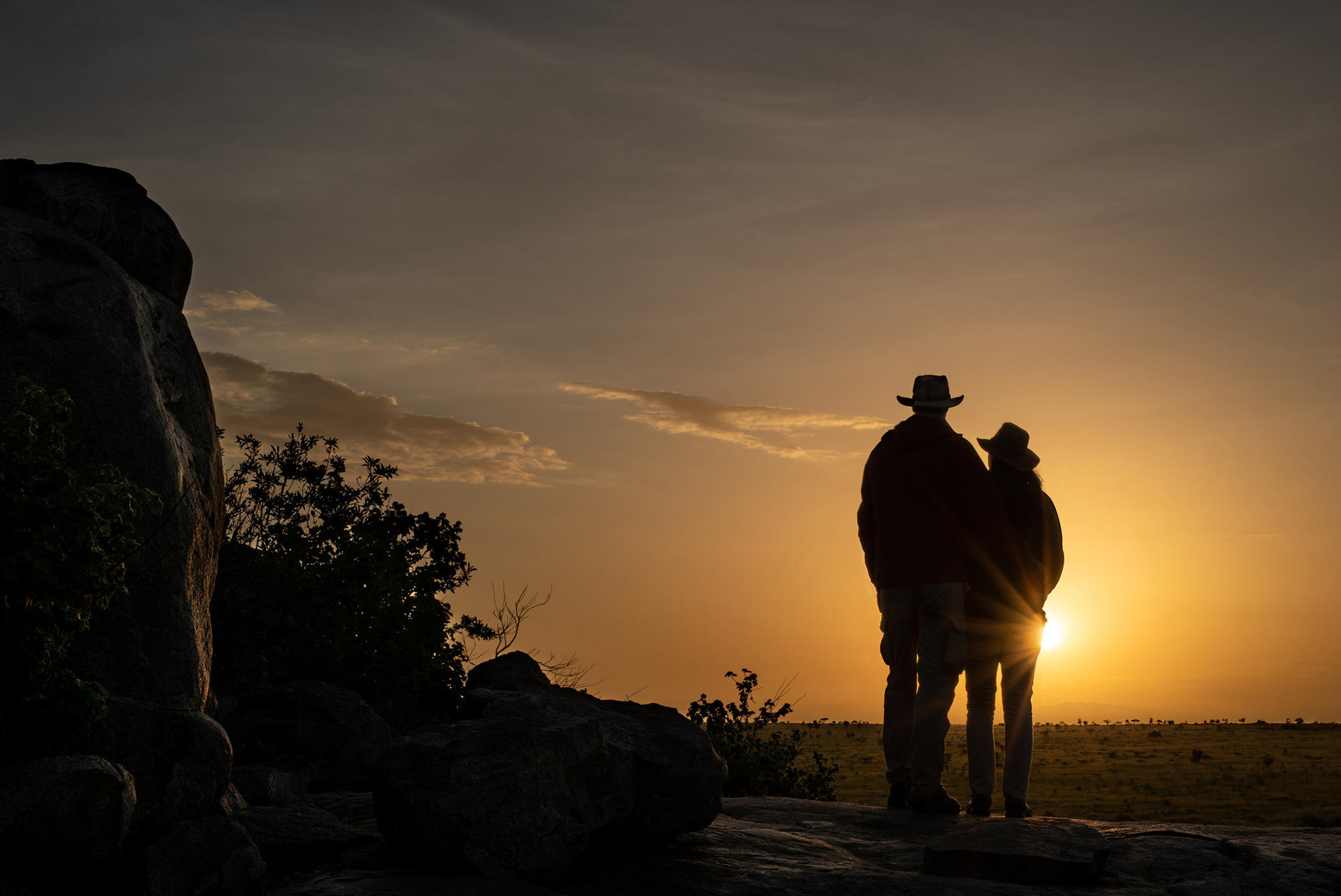
Tanzania
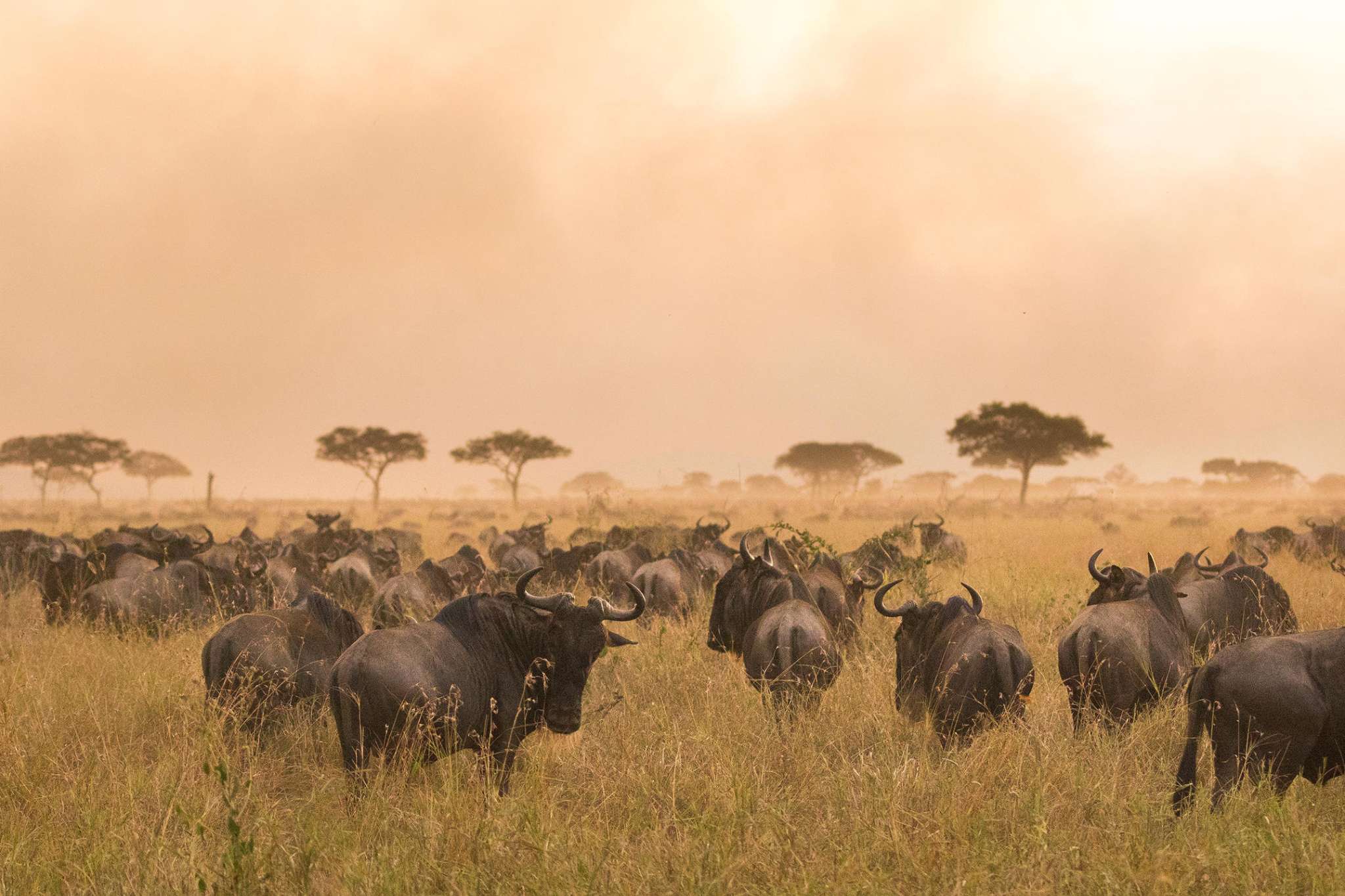
Tanzania Safari Tours and Holidays
Habari, and welcome to the incredible Tanzania! Situated on the east coast of Africa, this is one destination which truly has something for everyone. Within its borders you’ll find everything from the mighty Mount Kilimanjaro blanketed by clouds, to the grasslands of the Serengeti National Park and the bustling charm of Dar es Salaam.
This diverse destination is one of our favourites here at Bench Africa, which is why we love sharing our experience and knowledge in the region with intrepid travellers. If you’ve been dreaming about breathtaking wildlife encounters, or perhaps taking a dip in Zanzibar’s azure waters, we can help you to plan your ultimate Tanzania safari.
Many of our customers tend to combine a safari in Tanzania with a safari in Kenya, so that they can tick off a couple of bucket list spots in one go. Our Highlights of East Africa small group tour is Bench Africa’s best selling safari, covering off a large number of East African highlights in just 13 days!
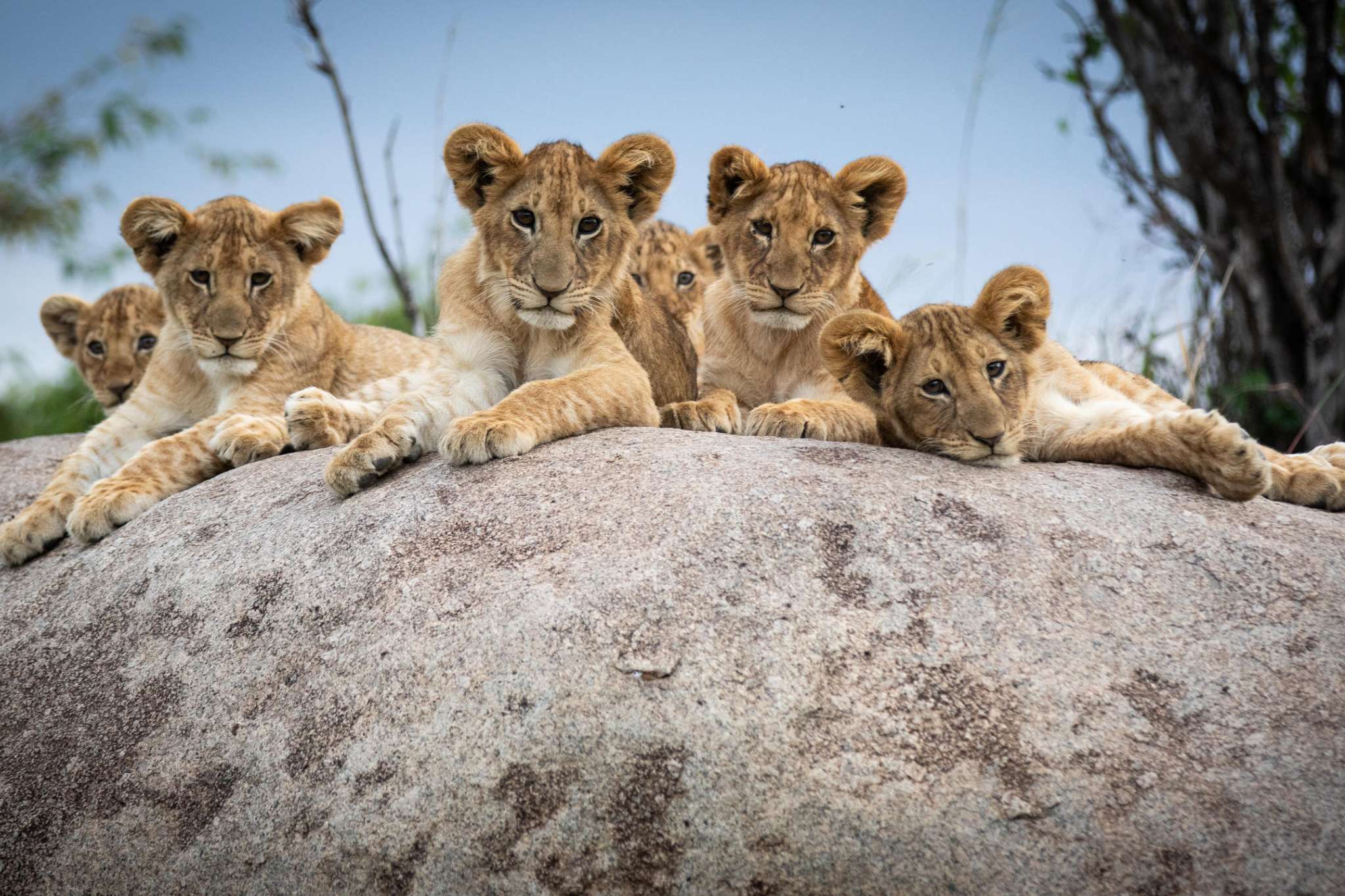
About Tanzania
Tanzania has seen the influence of a number of nations and cultures in its past. Today, it comprises what was known as Tanganyika and the Zanzibar archipelago. The first gained independence in 1961, and after Zanzibar followed suit two years later both territories unified to form modern-day Tanzania in 1964.
Today, Tanzania’s population numbers over 54 million, with English and Kiswahili (Swahili) spoken throughout. While people working in the tourism industry tend to have good English, in rural areas knowing a few words in Kiswahili can be helpful. Zanzibar has a strong Muslim identity which can be attributed to its time as an Omani Sultanate, and as such, the style of dress can trend toward more modest attire.
In terms of the climate, you’ll find Tanzania pleasantly warm, thanks to its proximity to the Equator, while the weather tends towards the more tropical on the coast. In addition to doing your spending in Tanzanian shillings, you may also encounter Swahili timekeeping, which is calculated from sunrise, rather than midnight.
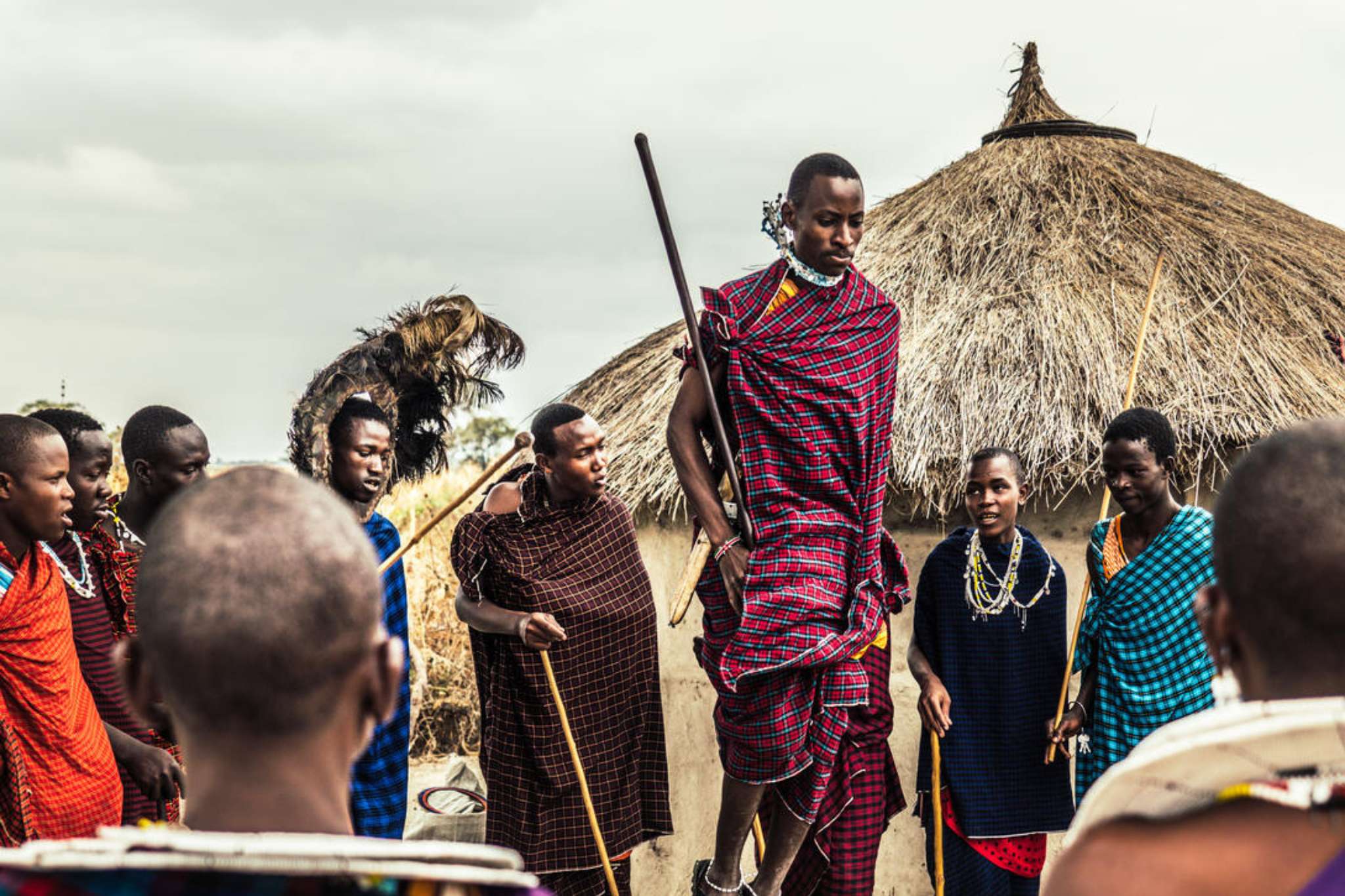
Tanzania tourism
Given the range of amazing sites spread throughout the country, our Tanzania tours can offer a truly varied experience. Once a fishing village, Tanzania’s largest city of Dar es Salaam is now a thriving metropolis, its architecture a blend of African, Arab and European style tucked between glimmering, glass-faced high rises.
Heading inland, the world-renowned Serengeti National Park is the perfect place for an Tanzania safari. Looking across the flatlands which stretch almost infinitely into the horizon, this UNESCO World Heritage site is breathtaking in its 1.5 million hectare expanse.
It is also the stage upon which one of the world’s most special events takes place – the annual great wildebeest migration. Not a country to do things by halves, Tanzania wraps around the southern bank of Africa’s largest lake, Lake Victoria, and is also home to Mount Kilimanjaro, a dormant volcano and Africa’s tallest mountain.
Take a short flight or ferry ride out from Dar es Salaam, and you’ll arrive in Zanzibar. While it forms part of Tanzania, Zanzibar’s islands have their own atmosphere, food, religion and culture. Spend your days wandering through the historic Stone Town, or stretched out on the sand of one the islands’ pristine beaches. This is the perfect place to wind down after one of our Tanzania safaris.
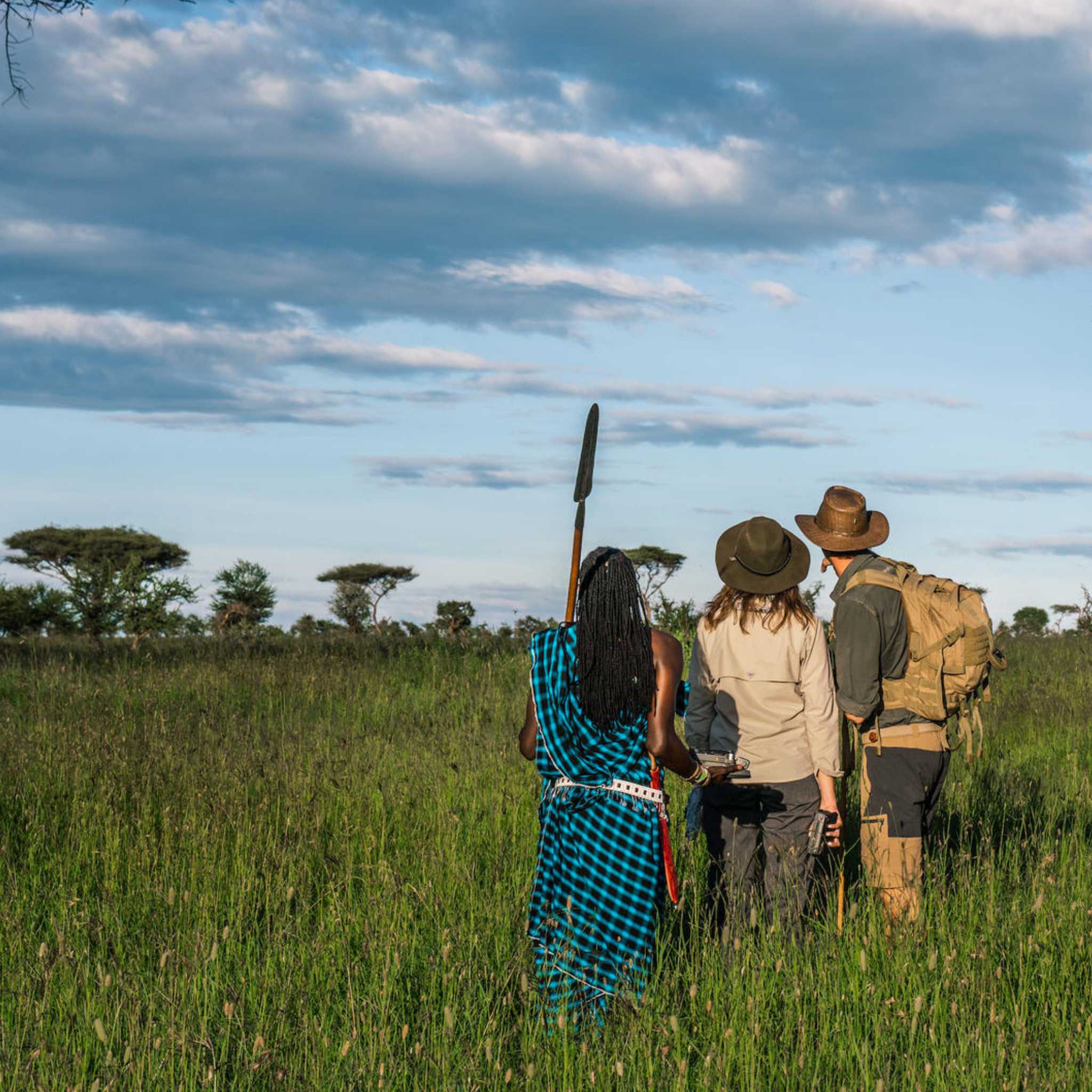
- Full Country Name United Republic of Tanzania
- Area 945,000 sq km
- Population 54.3 million (UN 2015)
- Capital Dodoma
- Borders Kenya, Uganda, Rwanda, Zambia, Malawi, Mozambique, Democratic Republic of Congo
- Religion Mainland – Christian 30%, Muslim 35%, Indigenous beliefs 35%; Zanzibar – more than 99% Muslim
- Time Zone GMT +3
- Languages Kiswahili or Swahili (official), English (official, primary language of commerce, administration, and higher education), Arabic (widely spoken in Zanzibar), many other local languages
- Country Dialling Code +255
Tanzania highlights
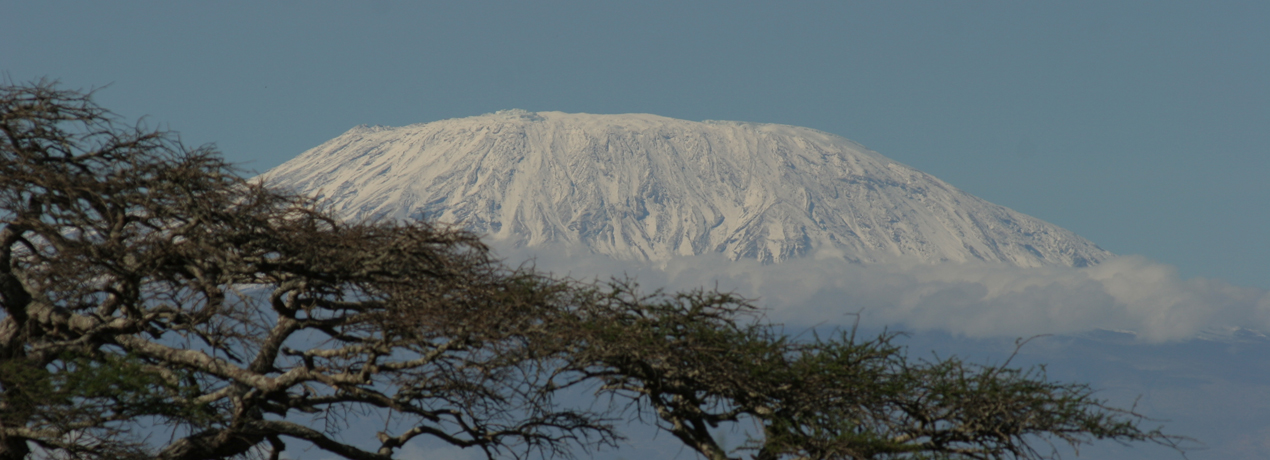
Mount Kilimanjaro
Climb to the ‘Roof of Africa’ and conquer her highest mountain at 5,895 metres at the peak.
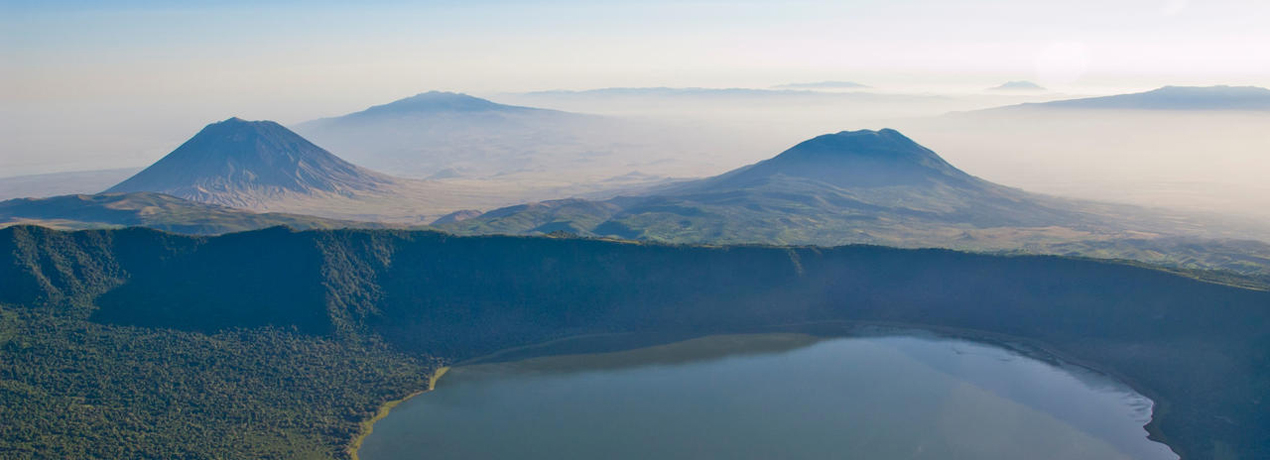
Ngorongoro Crater
The Ngorongoro Crater, UNESCO World Heritage site, is one of the world’s greatest natural spectacles with its magical Garden of Eden setting and abundant wildlife. The largest perfect caldera in the world, this outstanding wonder is only one of the attractions within a vast and diverse conservation area bordering the Serengeti National Park to the north and west.
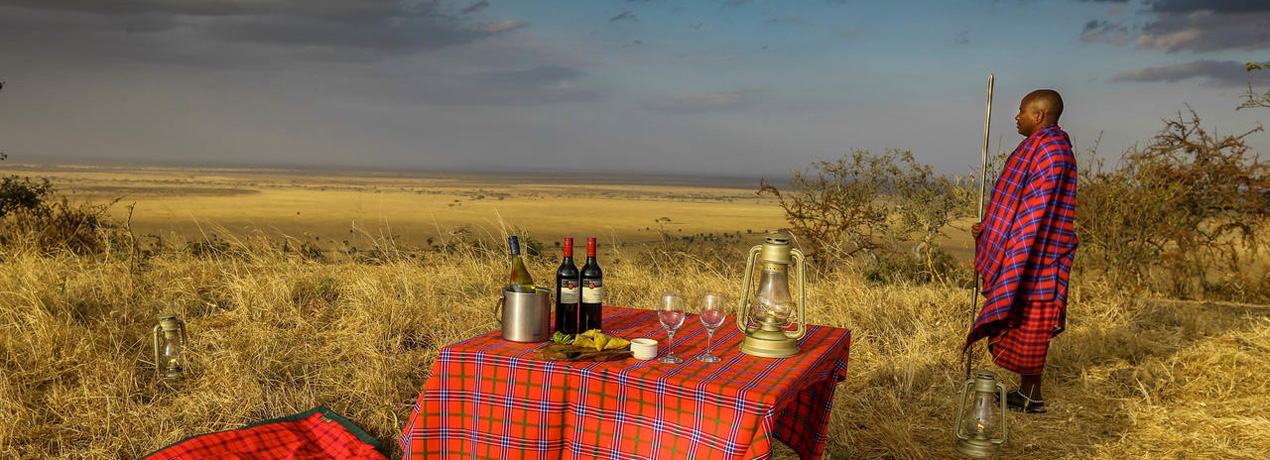
Serengeti National Park
An iconic African safari destination, Tanzania's Serengeti National Park is a world of stunning landscapes with a range of wildlife waiting to be discovered!
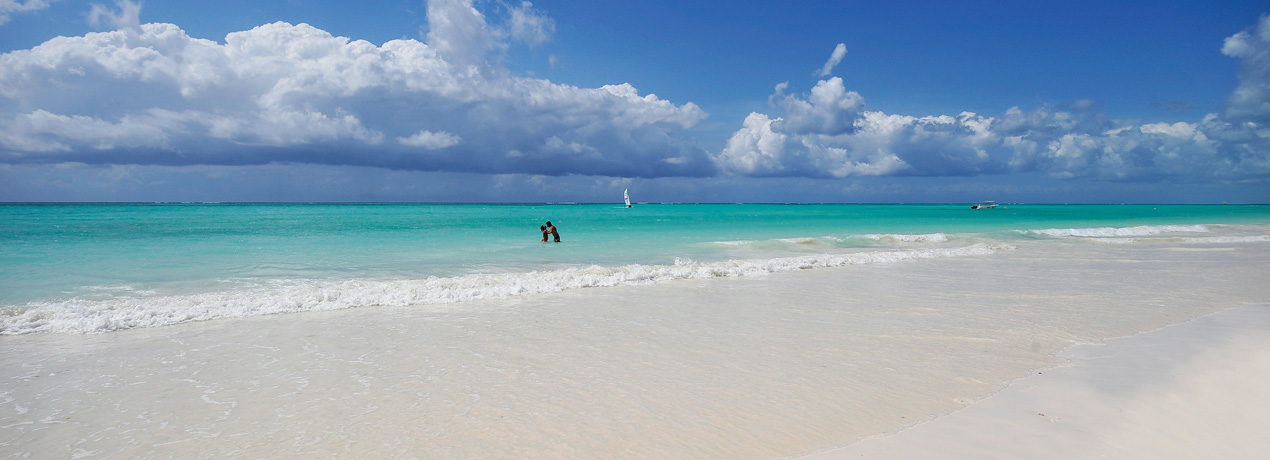
Zanzibar
A short hop from mainland Tanzania, the island is an exotic location for a complete change of pace. Surrounded by pristine coral reefs, azure blue water, natural lagoons, mangrove swamps and beautiful coconut palm fringed sandy beaches.
Tanzania experiences
Blog posts on Tanzania
Essential trip information
-
Accommodation
-
Accommodations in Africa, including hotels, lodges, and tented camps, vary from good tourist standards to award-winning deluxe properties. Occasionally, circumstances beyond Bench Africa’s control may necessitate a change in the assigned hotel, lodge, or camp. In such cases, we will make every effort to provide advance notice. However, please note that we may not be able to provide up-to-date information on the substitute property.
For information about the individual hotels, lodges, or tented camps designated for your stay, please consult your itinerary for a detailed overview.
Adventure Camping
We recommend this for the more intrepid travellers who want to get their hands dirty! Guests will put up their own tents and may be required to help around the campsite. The basics are catered for, as well as two-man tents and sleeping mats and campsites preselected to stay at along the journey. The amenities at these campsites can vary quite drastically depending where you are in Africa and what you pay. For example in the Serengeti there is no running water at the campsites, however in other parts of Africa the campsite may have a swimming pool.
Fully Serviced Camping
For those that want to experience a traditional safari, under canvas but would still like the chance to relax and take time to enjoy their environment we would recommend fully serviced camping. On arrival the mobile camp is set up and ready to go. The tents are spacious and can be really quite luxurious, often with camp beds and en-suite bathrooms, as well as a full staff of chefs, waiters and other helping hands. Here you will have lighting, hot water and cold drinks but you still have that amazing feeling of being at one with nature!
Luxury Tented Camping
Luxury tented camps are a very popular choice on safari because these camps are very intimate, usually with no more than 20 tents on site. These luxury tents offer spacious rooms with electricity, proper beds, as well as en-suite bathrooms with running hot and cold water. The cuisine and service is of a very high standard and you will eat like a king, with 3 decadent meals a day, as well as snacks. All luxury tented camps offer an all-inclusive package to incorporate meals, local drinks and game viewing activities. At night you can still go to sleep, under canvas with the sounds of the African wilderness around you. This is how you do safari in style!
Safari Lodges
Safari Lodges vary considerably in size and architectural design but essentially these are much more permanent structures, often with many more rooms than luxury tented camps. They will often have a swimming pool and conferencing facilities. A lodge will celebrate the nature surrounding it and will usually blend in with its surrounds and built making natural, locally sourced materials.
Hotels
This would commonly be the largest of all the accommodation types but again can vary quite dramatically in style, size and the amenities that it offers. There is typically a reception area, with rooms opening directly onto a hallway. They would be less exclusive that the aforementioned accommodation types, with restaurants and other facilities open to the public.
Boutique Hotels
A boutique hotel is a 5-star establishment providing all the features and facilities of a standard hotel but is always unique and very stylish. These properties are usually smaller and more intimate than a hotel and offer a very high-end service. Note Hotels, lodges and tented camps in Africa range from good tourist standard to award- winning deluxe properties. On occasions it may be necessary to change a hotel, lodge or camp due to various reasons, which would be out of the control of Bench Africa. In this situation we will make every effort to give you as much advance warning as possible. In the event of this happening we may not be able to send out up-to-date information on this substitute property. For more information on the individual hotels, lodges or tented camps where you will be staying please refer to your itinerary or speak to one of our Africa experts.
-
Clothing
-
General Information
In most of Africa, formal attire is typically unnecessary; therefore, we recommend limiting your luggage to the basics. However, more formal attire may be necessary in prestigious city hotels or during luxury rail journeys, such as Rovos Rail or the Blue Train in South Africa.
On a wildlife safari, casual cotton clothing is the most practical. Opting for calm, neutral colours like tan or khaki is advisable, although a specific bush outfit is not essential. It is recommended to wear some form of sun-protective headgear, and sunglasses are essential.
To cope with colder evenings and early mornings, it’s advisable to bring a warm fleece or jacket. Additionally, a lightweight raincoat may prove useful, considering the possibility of seasonal rains. While heavy footwear is unnecessary, it’s advisable to wear sturdy, comfortable walking shoes or boots for nature walks. It’s also recommended to bring a change of shoes, like trainers, for the camp setting.
The dress code is informal at all camps but bring long-sleeved shirts and trousers for the evenings to minimise exposure to insect bites.
Many hotels, game lodges, and camps provide laundry facilities, often as a complimentary service, especially when luggage space is limited. However, if you have a busy itinerary, it is advisable to check in advance that your clothes will be ready before your departure.
Safari Checklist
Essentials:
- Soft-sided bag for easy storage in safari vehicles and light aircraft
- Hat for sun protection
- Reusable water bottle
- Good quality, preferably polarized sunglasses
- Binoculars
- Torch
- Camera, charger, and adaptor
- Travel adaptor for charging devices
- Spare glasses (if you wear contact lenses)
- Comfortable walking shoes, trainers, and sandals
- Shorts/skirts
- Long trousers/slacks
- T-shirts/long-sleeved cotton shirts for cooler evenings
- Sweater/fleece/raincoat for early morning and late afternoon game activities
- Warm jacket, beanie, gloves, and scarf for winter months
- Swimming costume
Health and Safety:
- Basic medical kit (aspirins, Elastoplast, Imodium, antiseptic cream, etc.)
- Malaria tablets and antihistamine cream
- Insect repellent containing DEET (though many lodges provide sprays)
- Protective suntan lotion, especially for pale and sensitive skin
- Tissues or ‘wet wipes’
- Lip balm
-
Communication
-
Africa generally has a well-established telephone, mobile, and satellite network. International telephone services are commonly provided by hotels and lodges, with private telecommunication centres available in larger towns. If you have a mobile phone with roaming capabilities, you can utilise cellular networks, which are prevalent in most larger towns and tourist areas. Alternatively, you have the option to purchase a local SIM card upon entering the country. It’s important to note that phone coverage may be limited in wildlife areas, and Wi-Fi may not always be accessible in camps and lodges. However, many hotels and lodges do provide email and internet services, contributing to communication options while travelling in Africa.
-
Country Overview
-
Country: United Republic of Tanzania
Area: 945,000 sq km
Population: 54 million (UN 2021)
Capital City: Dodoma
Religion: Christian, Muslim, Indigenous beliefs
Time Zone: GMT + 3.00
Languages: Swahili, English
Country Dialling Code: + 255Tanzania, a captivating East African jewel, beckons with its diverse landscapes, cultural diversity, abundant wildlife, and iconic landmarks.
Mount Kilimanjaro, Africa’s highest peak, stands as a majestic sentinel, drawing adventurers and trekkers from around the globe. The Serengeti National Park, synonymous with the Great Migration; an unparalleled spectacle of wildebeest and zebra traversing the vast plains. The Ngorongoro Crater, a UNESCO World Heritage site, cradles a unique ecosystem within its volcanic rim, host to a vast array of wildlife.
The spice-scented island of Zanzibar, with its historic Stone Town and pristine beaches, invites exploration and relaxation. Zanzibar’s UNESCO-listed Stone Town preserves tales of spice trade, Arabian architecture, and Swahili culture.
Tanzania’s commitment to responsible tourism aligns with its dedication to preserving natural habitats and uplifting local communities.
Whether embarking on a safari, scaling mountains, or unwinding on pristine beaches, Tanzania promises an enchanting journey that celebrates the harmony of nature and culture.
-
Electricity
-
Voltage & Frequency
The standard voltage in Tanzania is 230V, with a frequency of 50 Hz.
Top Tips
Generators typically supply electricity in most camps and some lodges/camps only have power in the early mornings and evenings. While batteries can often be recharged during the day in camps, it is recommended to confirm with the camp manager.
Socket Types in Tanzania
Type D (Old British 3-pin)
Type G (Irish/British 3-pin) -
Families
-
We would not recommend travelling to Tanzania with children under the age of 6 as it is not malaria-free. The dry season is better for travel with children as there are fewer mosquitos at this time of year. Having said this, precautions must still be taken to prevent malaria. Please speak to your doctor.
Travel in the dry season is also a lot easier. Speak to our Africa experts about child rates. Most hotels and all national parks offer discounted entry and accommodation rates for children.
Tanzania can be a good option for families as there is a nice balance of excellent quality beach and bush to keep children stimulated.
Allow one of our consultants to design a holiday to suit the needs of you and your family.
-
Food & Drink
-
General guidelines
Most lodges and safari camps have restaurants and licensed bars, and the food offered ranges from good basic meals to gourmet style. The standard of food in lodges and camps is generally very good.
Bottled water is available in all tourist centres. It is advisable to drink at least 2-3 litres of water per day whilst on safari as dehydration can occur quickly, especially in the summer months. It is best to assume that water is NOT safe to drink unless it has been boiled. It is always wise to double check locally if in any doubt.
Wine tends to be imported and may be expensive; however, local beer and local spirits are reasonably priced and easily available as are soft drinks (Pepsi, Coca Cola etc) and bottled water.
-
Health
-
Health requirements vary from country to country. We recommend you speak to your GP or local Travel Doctor for up-to-date information and advice. The following information is to be used as a guide only.
Malaria: For travel to various regions in Africa, taking precautions against malaria is advisable. Consult with your doctor to determine the recommended prophylactic for your trip.
Yellow Fever: Proof of yellow fever vaccination may be required for entry to Tanzania if arriving from or transiting through a yellow fever risk country.
-
Insurance
-
Our Tips for Choosing Insurance
Insurance is a mandatory requirement for your travels, and we strongly advise you to secure Comprehensive Travel Insurance at the time of booking your trip.
Make sure you have a thorough understanding of the Terms and Conditions outlined in your policy and that you are well informed about your insurance coverage to ensure that you are adequately prepared for any unforeseen circumstances during your travels.
-
Internal Flights
-
Guidelines
It is advised to request the local operator of the hotel/lodge to reconfirm all onward flights before departure to ensure the accuracy of the flight timings.
While most departure taxes (both domestic and international) are typically included in the tickets, certain regional and private airports may require local payment for taxes.
General Luggage & Weight Restrictions on Light Aircraft
Most charter companies strictly adhere to luggage allowances, which can vary from 15kgs to 20kgs per passenger, including camera equipment and hand luggage. It is imperative to check your itinerary for the accurate luggage weight allowance specified for your trip.
Soft bags are the only acceptable form of luggage, as hard suitcases cannot be accommodated due to their physical inability to fit into safari vehicles and small aircraft storage compartments. Pilots must have the flexibility to manipulate soft bags into these compartments.
On certain light aircraft, passengers may also be subject to personal weight restrictions for safety reasons. It is advisable to check with us upon booking to ensure compliance with these guidelines and to address any specific concerns.
-
Kilimanjaro Trek
-
In order to make sure that you make the most out of your experience, we have put together a Beginners Guide to Climbing Mount Kilimanjaro
-
Local Laws
-
As part of a positive environmental initiative, Tanzania (including Zanzibar), along with over 40 other countries, has implemented a ban on plastic bags. The ban encompasses carrier bags with handles, with or without gussets, and flat bags without handles or gussets. Carrying plastic bags, including duty-free and zip-lock bags, matching this description is strictly prohibited upon entry at the international airport. These bags will be confiscated, and individuals caught using them will face a fine.
To prevent inconveniences and legal consequences, visitors are strongly advised to avoid using any form of ‘disposable’ plastic carrying bags in both main luggage and hand luggage. Please check hand luggage before disembarking and any plastic bags should be left in the plane. This does not apply to people in transit.
-
Money Matters
-
Currency
The official currency in Tanzania is the Tanzanian Shilling (TZS), decimalised with 100 cents to the Shilling.
You Should Know
Full banking services are accessible in major towns, though they may involve a commission. When exchanging money, US Dollars in cash is the preferred currency, provided the bills are in good condition, without tears, and issued after 2006. Barclay’s Bank in Tanzania has introduced a policy where they will no longer accept notes printed before 2006. Clients who carry US Dollar notes printed before 2006 will be compelled to accept a rate of exchange lower than normal. It is also advisable to carry small-denomination cash for convenience.
Credit cards are not accepted everywhere, so it is not advisable to rely solely on credit cards as a primary source of funds, particularly in places where card usage may be limited, such as remote lodges. It is recommended to inform your bank before using your credit card overseas, and using a PIN number is considered more secure than a signature. In Africa, Visa is the most widely accepted credit card, with larger establishments also accepting American Express and MasterCard. Diners Club is not generally accepted in most establishments.
-
Photography
-
Photographing of airports, Government buildings, etc is prohibited. Some local people strongly object to photographs being taken without permission, but will sometimes agree upon payment of a small tip. Please check with your guide.
Film and memory cards are generally available, but stocks can be limited and could be expensive, so we suggest you carry with you adequate supplies. Telephoto lenses for game viewing, lens hood and ultra violet filters will be useful – bring your dust cover. Batteries can be recharged at most lodges and hotels, but it is advisable to bring spares.
See our 7 Handy Tips for Taking Mesmerising Photographs for tips on nature and wildlife photography.
-
Recommended Reading
-
- The Africans by David Lamb
- The White Nile by Alan Moorehead
- Serengeti Shall Not Die by Bernard Grzimek
- The Remarkable Expedition by Olivia Manning
- The White Tribe of Africa by David Harrison
- Memoirs of an Arabian Princess from Zanzibar by Emily Ruete
-
Responsible Giving
-
As you prepare for your journey to Africa, consider making a positive impact on local communities by allocating a small space in your luggage for essential items that can significantly improve the lives of those in need.
Explore the Pack for a Purpose initiative, connecting travellers with specific requirements identified by local projects. The website provides a platform where you can find a list of requested items and guidelines for responsible giving.
Additionally, many camps actively engage in community projects, often sharing details on their websites. Take a moment to visit the websites of the camps you’ll be staying at. Check if they have specific needs for supplies that you can bring and donate upon your arrival. A small act of generosity can make a significant difference.
-
Road Travel
-
Road Conditions
Tanzania, like many countries in Africa, is classified as a developing nation. It’s important to note that certain areas may have infrastructure that doesn’t meet the standards commonly found in more developed regions. Specifically, some roads can be quite rough, and short journeys might take longer than anticipated. Be prepared for some days to be long and bumpy due to Tanzania’s road conditions.
Despite this, the breath-taking views, spectacular scenery and potential to witness village life during these journeys often make the trip highly worthwhile.
Road Safety
Established in 1969, Bench Africa has decades of experience in planning safaris with safety as a priority. We recommend travelling with a reputable ground operator that follows strict speed and road safety guidelines. Booking through Bench Africa ensures you are in capable hands throughout your journey.
-
Safety and Security
-
General Safety
- Doors should be locked when driving after dark.
- Don’t walk alone at night in city streets, isolated beaches or remote areas.
- Travellers should not display unnecessary signs of wealth (e.g. mobile phones, money, and expensive jewellery) on the streets.
- Leave all your valuables including passports locked in the room safe where available.
Safety on Safari
When staying at safari camps and lodges, they will often give you a safety briefing and there are several key points to keep in mind regarding wildlife respect and safety:
- Wild animals in Africa are not like those found in theme parks; they are not tame.
- Camps are often unfenced, allowing wild animals to roam freely. While attacks are extremely rare, it is crucial to strictly follow camp guidelines to ensure your safety.
- Pay close attention to the camp staff and guides.
- Avoid wandering off on your own without a guide, even within the camp. Once you retire to your room at night, it is important that you do not leave.
- Observe animals silently, minimising disturbance to their natural activities. Loud talking on game drives can frighten the animals away.
- Never attempt to attract an animal’s attention. Avoid imitating animal sounds, clapping your hands, pounding the vehicle, or throwing objects.
- Respect your driver/guide’s judgement regarding proximity to lions, cheetahs, and leopards. Avoid insisting on getting the vehicle closer for a better photograph, as it can disrupt a hunt or cause animals to abandon a hard-earned meal.
- Dispose of litter properly, as litter on the ground can harm or poison animals and birds.
- Never attempt to feed or approach any wild animal on foot, particularly near lodges or in campsites where animals may have become accustomed to human visitors.
- Refrain from smoking on game drives, as the dry African bush is highly flammable, and a flash fire can pose a threat to animals and their habitat.
-
Shopping
-
There is a wealth of beautiful souvenirs and crafts available for purchase. Look out for vibrant materials, sisal bags, wood or stone carvings, unique artwork, handcrafted jewellery, woven goods, and appealing basketry. Bargaining is a customary practice at markets and roadside stalls but not typically in shops. Locals may initially quote inflated “tourist prices,” and negotiations are expected until a fair value is reached.
Cash in the local currency is widely accepted, as well as US Dollars, while credit cards may only be suitable for larger shops.
Bench Africa is committed to actively supporting anti-poaching initiatives. As part of our dedication to responsible tourism, we emphasise ethical practices and discourage the purchase of items associated with illegal wildlife trade, such as ivory, rhino horn, animal furs/hides, and other prohibited materials. Our commitment aligns with the ban on hunting and the protection of wildlife, reinforcing our stance against activities that harm or exploit endangered species.
-
Tipping
-
Tipping is customary in Tanzania, though not as widespread as in the United States or Europe. It is discretionary, a way of expressing gratitude for exceptional service.
To assist with budgeting, the following guidelines are provided in US Dollars:
Driver (per person per full day): $5.00
Guide (per person per full day): $5.00
Camp Staff (per person per day): $5.00
Safari Guide/Driver (per person per full day): $10.00
Local Transfers/bus (per person per activity): $3.00
Hotel porters (per bag): $1.00
Restaurant (per person per meal): $1.00
A la carte dining (percentage of bill): 10% -
Useful Numbers
-
Australia does not have an Embassy or Consulate in Tanzania. Should you require assistance we suggest can contact the Australian High Commission in Kenya.
Australian High Commission, Nairobi
Limuru Road, Rosslyn, Nairobi, Kenya
Phone: +254 20 4277 100Australian Consulate, Dar es Salaam
Level 3, Address Building, Plot 1403/01, Bains Singh Avenue, Msasani Peninsula
Dar es Salaam, Tanzania
Phone: +255 (0)753 301 837 -
Visa Information
-
Do I Need a Visa to Travel to Tanzania?
We do not provide advice on specific visas as regulations are subject to change and can vary from person to person. Please visit Smart Traveller for the most up-to-date information. We advise checking visa requirements at the time of booking and again before travelling to keep abreast of any changes that may have occurred.
Visa requirements vary between countries, and it is essential that you acquire the appropriate visa for your journey and ascertain whether it can be applied for in advance or on arrival, in which case you will need the exact physical money. Often, your passport must be valid for at least six months beyond your intended stay, with a minimum of two blank pages (a double page). You will be required to have onward travel documents and sufficient funds. It is advisable to carry photocopies of all important documents.
It is your personal responsibility to confirm that your passport is valid, contains the necessary visa, and that you have all required travel documents.
-
When to Travel
-
Climate
Despite its proximity to the Equator, Tanzania boasts a healthy and generally pleasant climate, thanks to its elevated terrain. The coastal areas, however, truly exhibit a tropical climate. Abundant sunshine graces the region throughout the year. With much of the land situated above 1,500 meters, the climate, while warm during the day, can be quite chilly at night.
The “long rains” typically occur in April and May. Following the long rains, the migration advances between August and October, as wildebeest journey from Tanzania to Kenya in search of fresh grazing. October and November bring occasional scattered rains, known as the “short rains,” which rejuvenate the atmosphere, greenery, and settle the dust.
Top Tip
During the migration there are camps located in the far North Serengeti where you can also see the wildebeest river crossings that will be less crowded than the Masai Mara. From late July – early October the migration is predominantly in Kenya’s Masai Mara, however. Green Season: April-May The green season brings heavy rainfall and more so than in any other African country this can be disruptive due to poor infrastructure. Advantages of visiting Tanzania in the green season
- This can be a great time for photographers and birders to travel.
- The landscape is lush and the birdlife is fantastic at this time of year.
- This is calving season so there are a lot of baby animals at this time of year.
- Rates are discounted so value for money is increased at this time of year.
- The rains usually only last a couple of hours so it doesn’t impact the whole day.
- You can expect more exclusive safaris as there are fewer tourists in the green season.
- The Serengeti and the Ngorongoro Crater can be visited at any time and offer good wildlife viewing consistently, whatever the season.
Disadvantages of visiting Tanzania in the green season
- The rains here can affect the quality of a safari so we tend to warn people of this before they book.
- Roads are in poor condition.
- It is necessary to travel in 4WD vehicles as minibuses can get stuck in the mud.
- Animals are more difficult to spot, as there is a lot of water around so they aren’t all concentrated at the water sources.
- There is also higher grass for the animals to hide in.
Dry season: July to October As the season name suggests, this is a dry time of year. These months offer the optimum weather conditions and excellent game viewing opportunities. Benefits to visiting Tanzania in the dry season:
- The game viewing at this time of year is excellent due to lower grass levels and less sources of water.
- This time of year offers good conditions for climbing Mount Kilimanjaro.
- This is a good time to visit Zanzibar as rainfall is minimal and winds are mild.
- The Selous National Park, in southern Tanzania, offers great walking safaris at this time of year.
Downsides of visiting Tanzania in the dry season:
- This can be a busy time to visit, especially July to September when tourists are hoping to catch the wildebeest migration/river crossing.
- Prices are higher, as it’s peak season.
Shoulder season: November – March Although this is not the optimum time of year for wildlife viewing, it can still be fruitful. The rains tend not to be disruptive and visitor numbers are fewer. Benefits to visiting Tanzania in the shoulder season:
- January and February can be a good time to witness the calving season, which in turn brings about increased predator activity.
- The landscapes are green and lush.
- Rainfall is usually limited to the afternoons so they rarely impact negatively on a safari.
- Bird watching is still very good at this time of year.
- Rates are lower at this time of year.
- Visitor numbers are fewer at this time of year.
- The Serengeti and the Ngorongoro Crater can be visited at any time and offer good wildlife viewing consistently, whatever the season.
Downsides of visiting Tanzania in the shoulder season:
- The weather can be unpredictable at this time of the year.
- The game viewing in the south and the west do not offer great wildlife viewing at this time of year.
Bench Africa on Instagram
